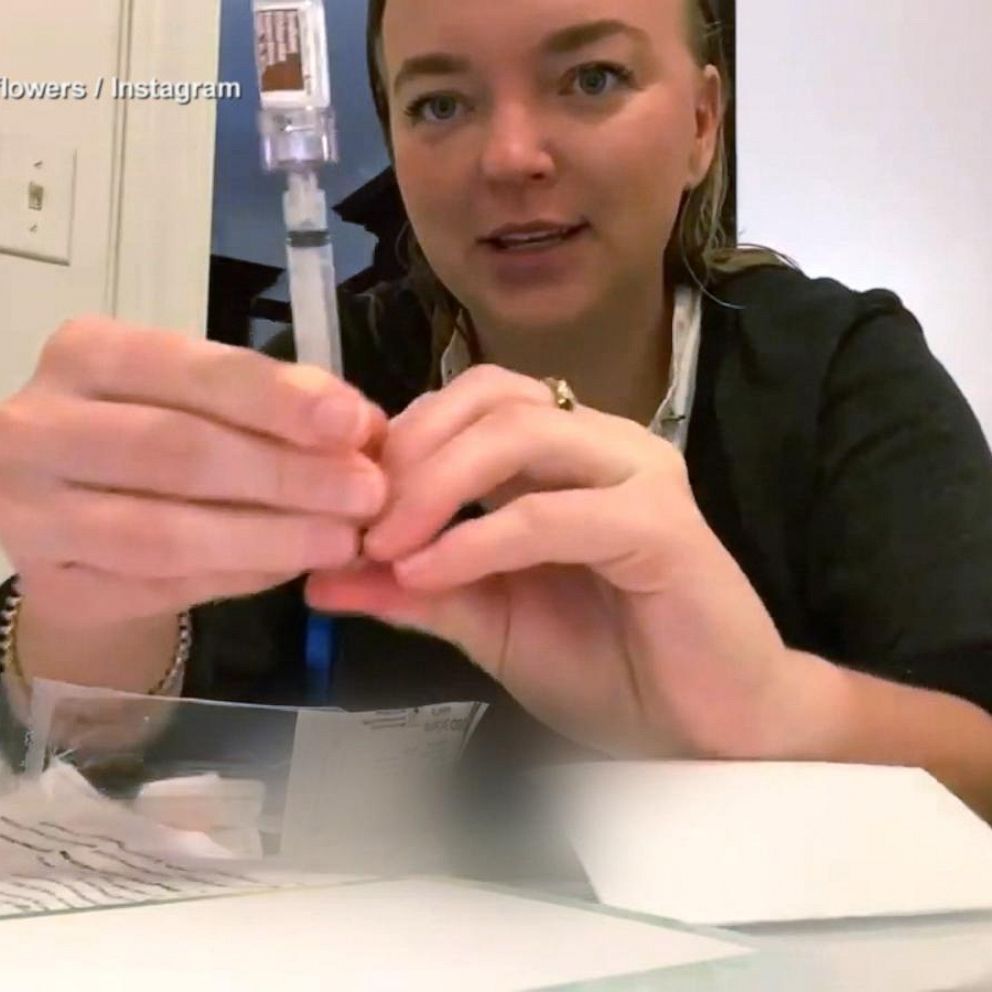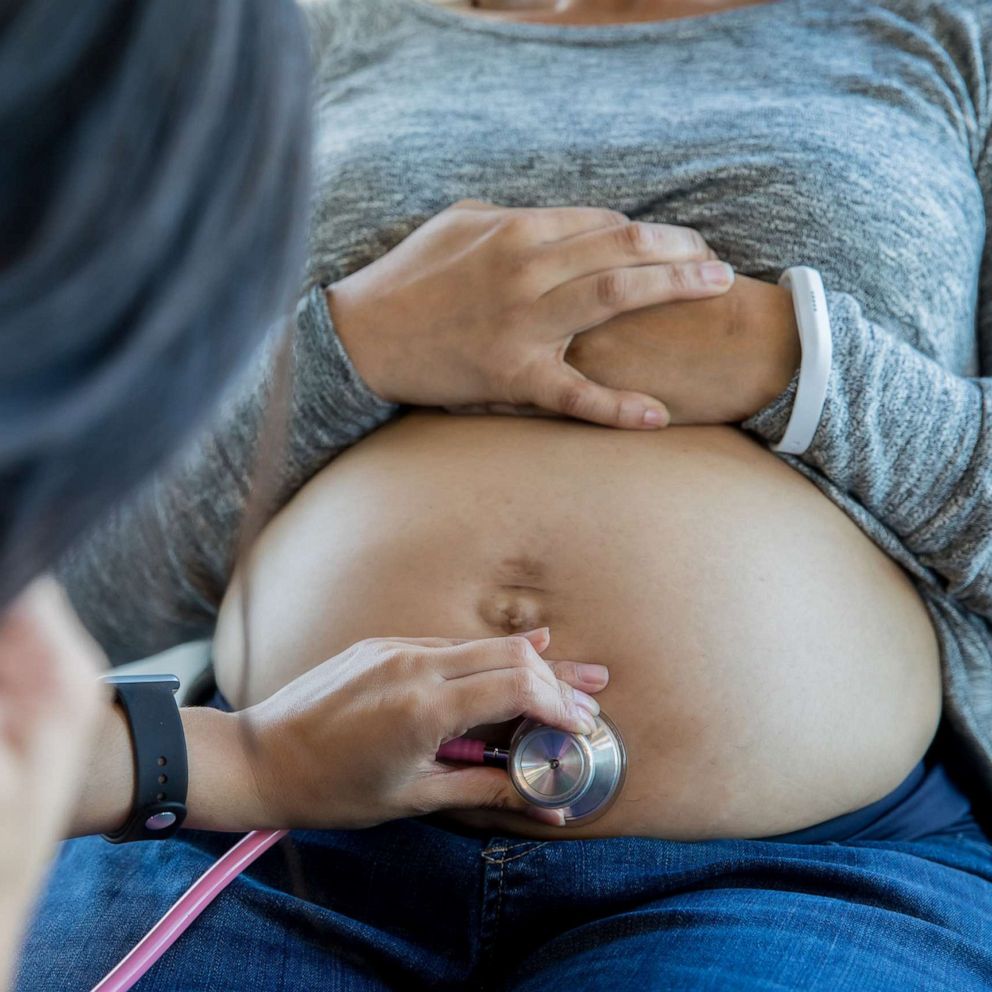Doctor looks for solutions as maternal health crisis worsens in the US
HHS has launched an action plan to help improve maternal health in the U.S.
Iaishia Smith said she did not know what to expect during her first pregnancy three years ago. Smith said she had extreme thirst, extreme fatigue and swollen feet, all conditions she said she discussed with her doctor.
"Those things were dismissed as just normal pregnancy things and as you know, a new mom, I didn't know what more to do," Smith, now 38, told "Good Morning America." "So I just said, 'OK, this must be normal.'"
Smith said she also didn't know what to do when she did not hear back about the results of her gestational diabetes test in her second trimester, telling "GMA," she thought "no news is good news" and carried on with her pregnancy.
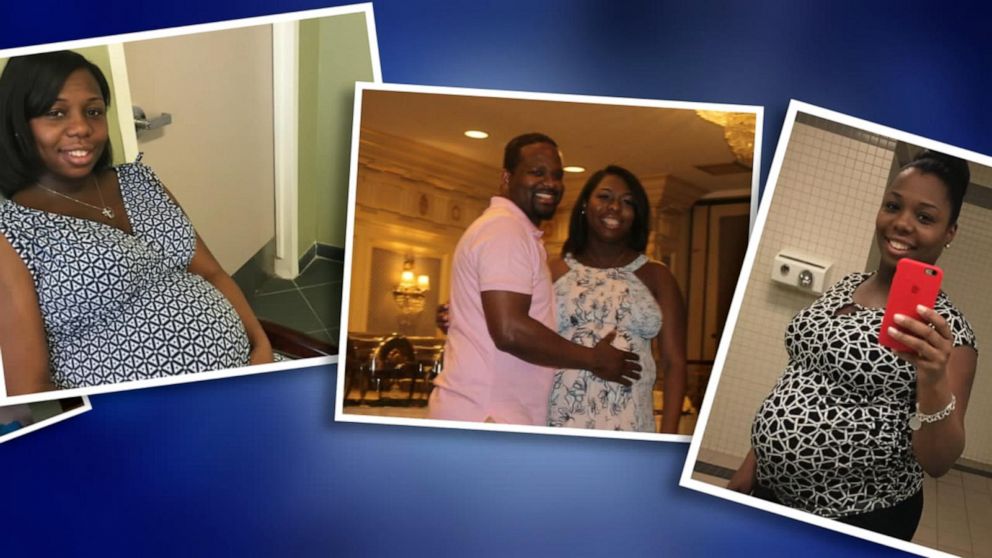
It was only when her daughter, whom she named Savannah, was born stillborn at 38 weeks and five days, that Smith realized she likely had gestational diabetes that went undetected and untreated during her pregnancy.
"Leaving the hospital empty-handed and driving home without my baby was perhaps the hardest thing I've ever done in my life," said Smith. "I wish I had pushed further and I had been my own advocate and I had asked my doctor to follow up and to find out, do blood work, do something to find out why I was experiencing these symptoms."
"Had I done that, I believe I would have had a different result," she said.
Smith's story of facing maternal health complications is not an uncommon one in the United States, particularly among women of color.
Around 24,000 babies are stillborn in the United States each year, according to the U.S. Centers for Disease Control and Prevention (CDC).
More stillbirths occur among women who are Black or age 35 or older compared to white women and women under 35 years of age, according to the CDC, which cites factors such as access to quality care, stress, social and emotional support resources and income as possible causes for the disparity.
When it comes to the health of moms, around 25,000 women in the U.S. develop severe complications during pregnancy each year, and around 700 women die as a result of pregnancy or delivery complications. Black women are two to three times more likely to die than women of other races and backgrounds, according to the CDC.
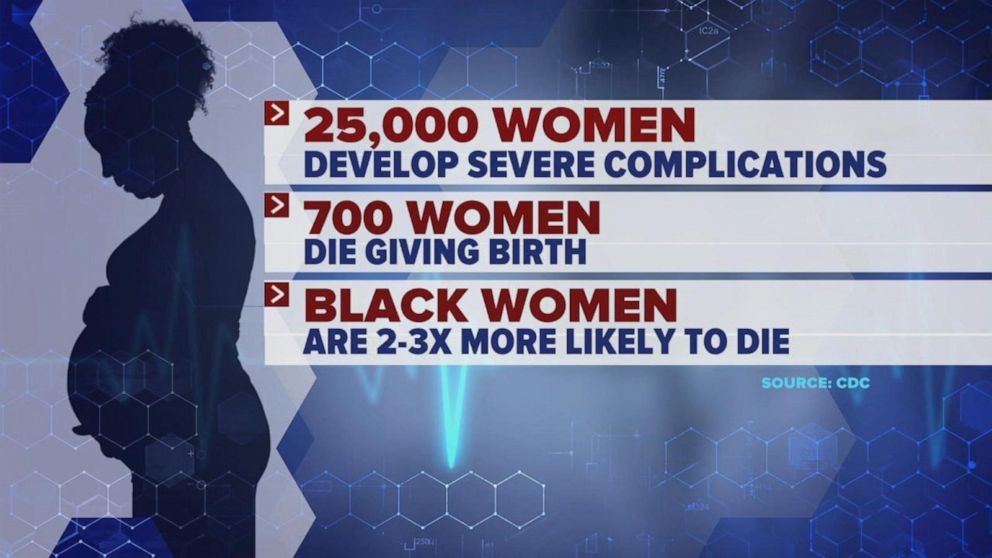
Pregnancy-related deaths are defined as the death of a woman during pregnancy or within a year of the end of pregnancy from pregnancy complication, a chain of events initiated by pregnancy or the aggravation of an unrelated condition by the physiologic effects of pregnancy, according to the CDC.
"It turns out an American today is 50% more likely to die in childbirth than her own mother was," said Dr. Neel Shah, assistant professor of obstetrics, gynecology and reproductive biology at Harvard Medical School. "The disparity in maternal mortality between Black people and everyone else is one of the most clear signs that structural racism exists, and is a clear and present danger to people's lives."
A CDC report released last year found that pregnancy-related deaths are associated with several contributing factors, including lack of access to appropriate and high-quality care, missed or delayed diagnoses and a lack of knowledge among patients and providers around warning signs. The majority of the deaths, no matter when they occurred, could have been prevented by addressing the factors at multiple levels.
Shah said that things as simple as a white board, or a huddle for doctors and patients, and a standard labor assessment that incorporates the patients' input and expertise, along with the physicians', could save lives.
In one trial using white boards for communication between doctors and patients, the more often conversations took place, the more patients understood what was happening and the greater role patients played in their own care, according to Shah.
"In childbirth in particular, 80% to 90% of the root cause are failures of communication and teamwork," he said. "And what that looks like, particularly around racism, is that when Black women express concerns about the way that they're feeling, particularly around pain, the whole health system is slower to respond."
"We should take communication equally seriously," Shah added. "I think if we did that a lot of the disparities that we see and a lot of the heartbreak that we see wouldn’t happen."
A new effort to reduce pregnancy-related deaths was announced last week by the Department of Health and Human Services.
The initiative is focused on "addressing risk factors before and during pregnancy, improving the quality of and access to maternity and postpartum care, and supporting a research agenda to fill gaps in current evidence," according to HHS.
One of the three main targets of the HHS plan focuses on cesarean sections, calling to reduce low-risk cesarean deliveries by 25% by the year 2025.
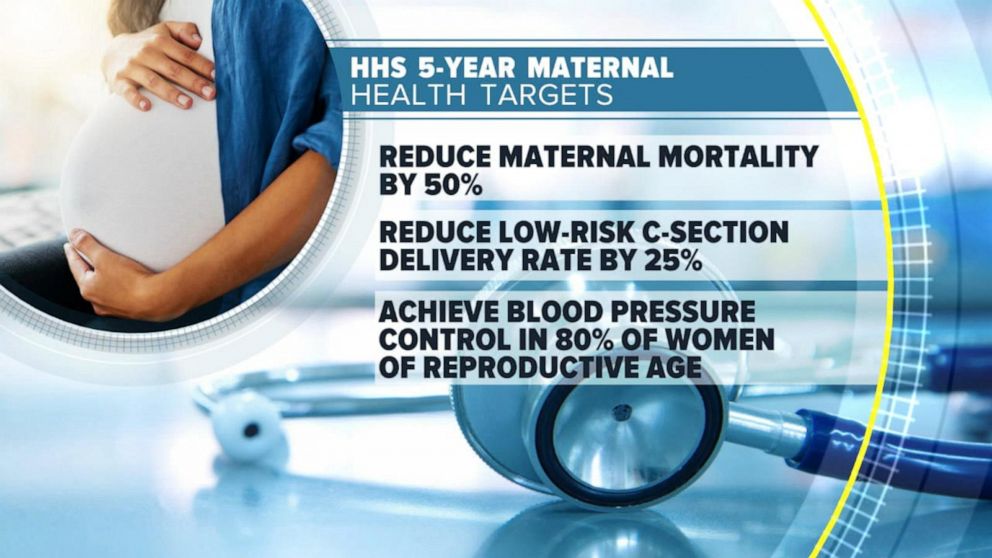
Since the 1970s, C-section rates have skyrocketed, along with increased risks, according to Shah.
"We're intervening 500% more with major surgery that's designed to rescue people," said Shah, citing CDC data. "And babies are zero percent better off and moms are 50% more likely to die."
In addition to reducing low-risk C-sections, the HHS plan also includes the ambitious goal of reducing the maternal mortality rate in the U.S. by 50% in the next five years.
Shah said he hopes that as steps are taken to improve maternal health in the U.S., the support needed for moms from pregnancy and beyond is not overlooked.
"I think it's very easy to expect moms to put their own well-being last in order to put their families first, and mothers are easily taken for granted," he said. "But it's really important for partners and for communities as a whole to make sure that moms are well supported, all along the way from pre-pregnancy to pregnancy to the birth itself and then particularly afterwards."
"Often all the attention goes to the infant and we can sometimes forget about the mom and her health, and we need to make sure that we're not doing that," Shah added.
Smith said she learned to speak up during her second pregnancy, in which she was diagnosed with and treated for gestational diabetes, and delivered a healthy baby boy last year.
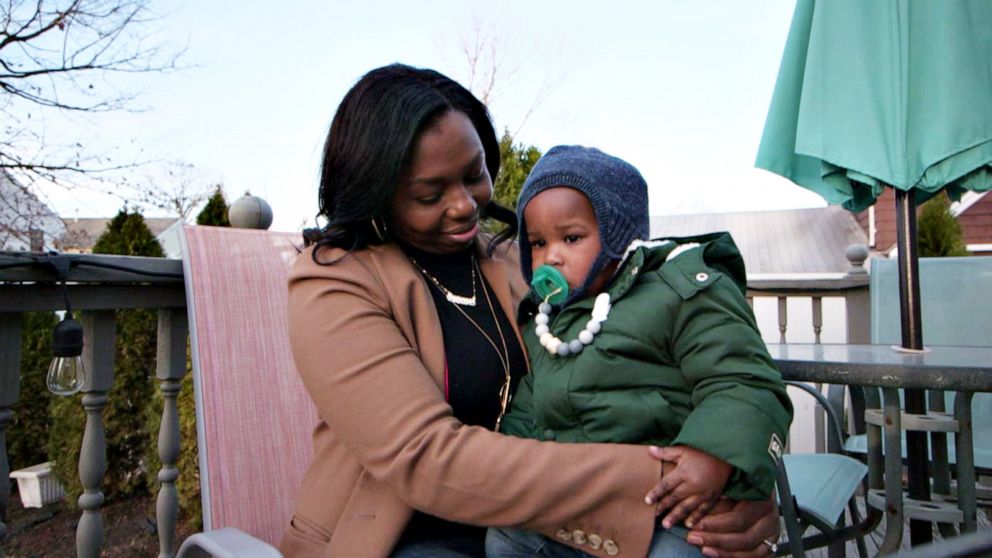
"Be your own advocate, ask the questions, team up with a doctor that you feel comfortable with, because your life depends on it," she said of her advice to other women. "Your child's life depends on it."

